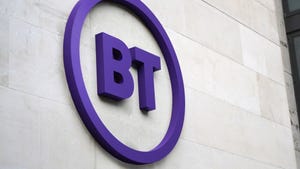Normally, we would advise a telecoms operator that faces stiff competition from established pay-TV operators to take a low-cost approach to TV, targeting new types of TV customer by partnering with strong content and consumer electronics brands rather than building everything from scratch (see Bundling: The smartest dumb-pipe strategy in town).
June 14, 2012

By Rob Gallagher
Normally, we would advise a telecoms operator that faces stiff competition from established pay-TV operators to take a low-cost approach to TV, targeting new types of TV customer by partnering with strong content and consumer electronics brands rather than building everything from scratch (see Bundling: The smartest dumb-pipe strategy in town).
To an extent, BT Retail is doing this. The next iteration of BT Vision will be based on YouView, the next-generation version of the highly popular Freeview digital terrestrial TV platform. But this choice also means that BT will have to work much harder to set its TV and broadband bundles apart.
While we expect BT’s move will be unlikely to cause few subscribers to leave the dominant pay-TV operator Sky, exclusive football rights will make BT Vision significantly different from whatever Talk Talk launches. And it is Talk Talk that BT will compete most fiercely and directly in the years to come.
Talk Talk is already BT’s biggest rival in the major market for “dual-plays” of fixed-broadband and –telephony. Both companies hope that these customers, who largely aren’t subscribed to Sky or cable operator Virgin, will be attracted to their own TV-based triple-plays.
But Talk Talk’s bundles could be remarkably similar to BT’s: its TV offer will also be based on YouView and regulation means that its superfast broadband offer is based on the same underlying fibre infrastructure that BT Group is investing £2.5billion in.
By adding exclusive sports content, BT stands a better chance of enticing subscribers to its bundles, which in turn will help prevent subscribers from churning to other providers.
The operator also stands a better chance of increasing average revenue per user (ARPU), particularly since few consumers will be willing to pay a premium for superfast broadband. Our research has shown time and time again that TV is the only element of bundles that where quality trumps price when most consumers come to buy.
BT Retail could also bundle exclusive content to speed up the migration of subscribers to its superfast broadband services, which will be crucial to the group making a return on its multi-billion pound investments in fibre.
Many consumers are finding it hard to justify the need for superfast broadband while online services that truly require such speeds have yet to emerge in any meaningful way. Any service based on the football content is unlikely to require such speeds either, but bundling it a discount with superfast broadband is at least going to give consumers a reason they can grasp.
Read more about:
DiscussionYou May Also Like






.png?width=300&auto=webp&quality=80&disable=upscale)


_1.jpg?width=300&auto=webp&quality=80&disable=upscale)


.png?width=800&auto=webp&quality=80&disable=upscale)